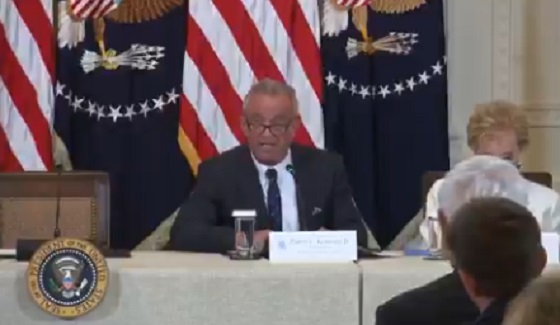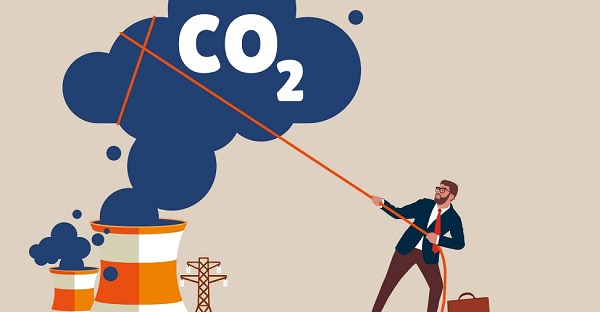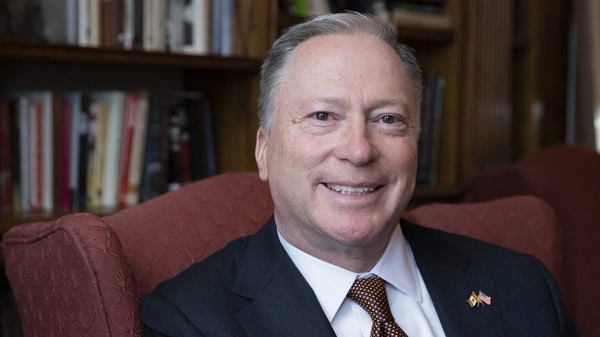Health
MAHA report: Chemicals, screens, and shots—what’s really behind the surge in sick kids

 MxM News
MxM News
Quick Hit:
Health Secretary RFK Jr. released a new report Thursday blaming diet, chemicals, inactivity, and overmedication for chronic illnesses now impacting 40% of U.S. children.
Key Details:
-
The Make America Healthy Again (MAHA) Commission report identified four primary culprits: ultra-processed diets, environmental chemicals, sedentary lifestyles, and overreliance on pharmaceuticals.
-
The commission called for renewed scrutiny of vaccine safety, arguing there has been “limited scientific inquiry” into links between immunizations and chronic illness.
-
President Trump called the findings “alarming” and pledged to take on entrenched interests: “We will not be silenced or intimidated by corporate lobbyists or special interests.”
"Our children's bodies are being besieged," says @SecKennedy on the new MAHA Report.
"These root cause factors are at the foundation of what's driving the chronic disease crisis — but until today, the government didn't speak about them." pic.twitter.com/dhF9wEUJGg
— Rapid Response 47 (@RapidResponse47) May 22, 2025
Diving Deeper:
On Thursday, Health and Human Services Secretary Robert F. Kennedy Jr. released a long-anticipated report from the Make America Healthy Again (MAHA) Commission, outlining what the Trump administration sees as the root causes of the chronic disease epidemic among American children. The commission concluded that roughly 40% of U.S. children now suffer from some form of persistent health issue, including obesity, autism, mental health disorders, and autoimmune diseases.
The report identifies four leading contributors: poor nutrition, chemical exposure, lack of physical activity and time outdoors, and overmedicalization of childhood ailments. One of the most alarming statistics cited is the extent to which children’s diets are now composed of what the commission called “ultra-processed foods” (UPFs), with 70% of a typical child’s diet made up of high-calorie, low-nutrient products that contain additives like artificial dyes, sweeteners, preservatives, and engineered fats.
“Whole foods grown and raised by American farmers must be the cornerstone of our children’s healthcare,” the commission urged. It also criticized government-supported programs like school lunches and food stamps for failing to encourage healthy choices, while noting that countries like Italy and Portugal have far lower consumption of UPFs.
The report also raised red flags about widespread chemical exposure through water, air, household items, and personal products. Items of concern included nonstick cookware, pesticides, cleaning supplies, and even fluoride in the water system. The commission referenced research indicating a 50% increase in microplastics found in human brain tissue between 2016 and 2024. It recommended that the U.S. lead in developing AI tools to monitor and mitigate chemical exposure.
Electromagnetic radiation from devices such as phones and laptops was also flagged as a potential contributor to rising disease rates, alongside a marked drop in physical activity among youth. Data cited from the American Heart Association shows 60% of adolescents aged 12-15 do not meet healthy cardiovascular benchmarks, and the majority of children aged 6-17 do not meet federal exercise guidelines.
The commission also tackled what it called a dangerous trend of overmedicating children without considering environmental or lifestyle factors first. Roughly 20% of U.S. children are on at least one prescription medication, including for ADHD, anxiety, and depression.
The commission specifically called out the American Medical Association’s recent stance on curbing health “disinformation,” arguing that it suppresses legitimate inquiry into vaccine safety and efficacy. It further noted that over half of European countries do not mandate vaccinations for school attendance, unlike all 50 U.S. states.
Trump, who established the MAHA Commission by executive order in February, signaled full support for Kennedy’s findings. “In some cases, it won’t be nice or it won’t be pretty, but we have to do it,” he said. “We will not stop until we defeat the chronic disease epidemic in America.”
Policy recommendations based on the report are expected to be delivered to President Trump by August. Among the initial proposals are expanded surveillance of pediatric prescriptions, creation of a national lifestyle trial program, and a new AI-driven system to detect early signs of chronic illness in children.
Addictions
BC premier admits decriminalizing drugs was ‘not the right policy’

From LifeSiteNews
Premier David Eby acknowledged that British Columbia’s liberal policy on hard drugs ‘became was a permissive structure that … resulted in really unhappy consequences.’
The Premier of Canada’s most drug-permissive province admitted that allowing the decriminalization of hard drugs in British Columbia via a federal pilot program was a mistake.
Speaking at a luncheon organized by the Urban Development Institute last week in Vancouver, British Columbia, Premier David Eby said, “I was wrong … it was not the right policy.”
Eby said that allowing hard drug users not to be fined for possession was “not the right policy.
“What it became was a permissive structure that … resulted in really unhappy consequences,” he noted, as captured by Western Standard’s Jarryd Jäger.
LifeSiteNews reported that the British Columbia government decided to stop a so-called “safe supply” free drug program in light of a report revealing many of the hard drugs distributed via pharmacies were resold on the black market.
Last year, the Liberal government was forced to end a three-year drug decriminalizing experiment, the brainchild of former Prime Minister Justin Trudeau’s government, in British Columbia that allowed people to have small amounts of cocaine and other hard drugs. However, public complaints about social disorder went through the roof during the experiment.
This is not the first time that Eby has admitted he was wrong.
Trudeau’s loose drug initiatives were deemed such a disaster in British Columbia that Eby’s government asked Trudeau to re-criminalize narcotic use in public spaces, a request that was granted.
Records show that the Liberal government has spent approximately $820 million from 2017 to 2022 on its Canadian Drugs and Substances Strategy. However, even Canada’s own Department of Health in a 2023 report admitted that the Liberals’ drug program only had “minimal” results.
Official figures show that overdoses went up during the decriminalization trial, with 3,313 deaths over 15 months, compared with 2,843 in the same time frame before drugs were temporarily legalized.
Health
Colorado gave over 500 people assisted suicide drugs solely for eating disorders in 2024

Fr0m LifeSiteNews
The lawsuit says Colorado’s assisted suicide law violates federal protections by allowing physicians to prescribe lethal drugs to some disabled patients under circumstances where others would be directed to mental health care
Doctors in Colorado are pushing assisted suicide on hundreds of patients solely because they suffer from eating disorders, according to a patients’ advocate sharing the harrowing story of one such case.
Writing in the Denver Post, Patient Rights Action Fund and Institute for Patient Rights executive director Matt Vallière tells the story of his friend Jane Allen, who battled anorexia “most of her life,” who in 2018 was diagnosed with “terminal anorexia,” a relatively recent diagnosis which has been criticized as overly broad and dangerous.
Her eating disorder doctor, Jane wrote, “would ‘make an exception’ for me and ‘allow’ me to die, if that was my choice. It didn’t feel like my choice – I felt coerced and spent an incredibly agonizing months in an assisted living facility.” She eventually received the suicide drugs, but was saved by her father winning a guardianship order and having the drugs destroyed.
“I ate just enough to not die right away. And then I ate more,” Jane wrote. “I weaned off the morphine and all the other hospice drugs that kept me in such a fog. I was getting better, and then I was told that I was too much of a liability and dropped from the clinic. I moved from Colorado to Oregon. I have a job that I love, a new puppy, and a great group of friends. I’m able to fuel my body to hike and do the things I love. I’m repairing my relationship with my family, and I have a great therapist who is helping me process all of this. Things obviously aren’t perfect, and I still have hard days. But I also have balance, and flexibility, and a life that is so much more than I was told would ever be possible for me.”
Jane ultimately passed away due to complications from her years of anorexia, which Vallière wonders could have been prevented by not detouring her down the terminal anorexia route. Regardless, her story details how easily similar cases can end in suicide for people without people willing to fight to give them hope. Live Action notes that last year, Colorado saw a record number of people, 510, prescribed suicide drugs solely for dietary disorders.
“What we do know is that these laws are not so rosy as the propaganda would have you believe,” Vallière writes, adding “there has been and will be more collateral damage in people like Jane or Coloradan Mary Gossman, who was told by a nationally renowned Denver eating disorder treatment facility, ‘there’s nothing we can do for you,’ which qualified her for lethal drugs under the law. She’s in a better place now and has joined as a plaintiff in a lawsuit to overturn the law. So, I ask: how many collateral deaths are acceptable to you?”
That lawsuit says that Colorado’s so-called “medical aid-in-dying” or assisted suicide law violates federal protections by allowing physicians to prescribe lethal drugs to some disabled patients under circumstances where others would be directed to mental health care, by “assum[ing] that a request for assisted suicide is not an indication of a mental disorder, when other Colorado laws make precisely the opposite assumption for virtually everyone else.”
Twelve U.S. states plus the District of Columbia allow assisted suicide. In April, however, a bill to legalize euthanasia failed in Maryland.
As Vallière has previously argued elsewhere, current euthanasia programs in the United States constitute discrimination against patients with life-threatening conditions in violation of the Americans with Disabilities Act, as when a state will “will pay for every instance of assisted suicide” but not palliative care, “I don’t call that autonomy, I call that eugenics.”
Live Action’s Bridget Sielicki further notes that “because a paralytic is involved, a person can look peaceful, while they actually drown to death in their own bodily secretions. Experimental assisted suicide drugs have led to the ‘burning of patients’ mouths and throats, causing some to scream in pain.’ Furthermore, a study in the medical journal Anaesthesia found that a third of patients took up to 30 hours to die after ingesting assisted suicide drugs, while four percent took seven days to die.”
Support is available to talk to those struggling with thoughts of ending their lives. The Suicide & Crisis Lifeline can be reached by calling or texting 988.
-

 Alberta2 days ago
Alberta2 days agoThe Technical Pitfalls and Political Perils of “Decarbonized” Oil
-

 National1 day ago
National1 day agoDemocracy Watch Renews Push for Independent Prosecutor in SNC-Lavalin Case
-

 Alberta2 days ago
Alberta2 days agoEnbridge CEO says ‘there’s a good reason’ for Alberta to champion new oil pipeline
-

 Alberta23 hours ago
Alberta23 hours agoClick here to help choose Alberta’s new licence plate design
-

 Censorship Industrial Complex2 days ago
Censorship Industrial Complex2 days agoCanada’s privacy commissioner says he was not consulted on bill to ban dissidents from internet
-

 Bruce Dowbiggin2 days ago
Bruce Dowbiggin2 days agoLong-Distance Field Goals Have Flipped The Field. Will The NFL Panic?
-

 Business2 days ago
Business2 days ago“Nation Building,” Liberal Style: We’re Fixing a Sewer, You’re Welcome, Canada
-

 International14 hours ago
International14 hours agoHamas will disarm or die






